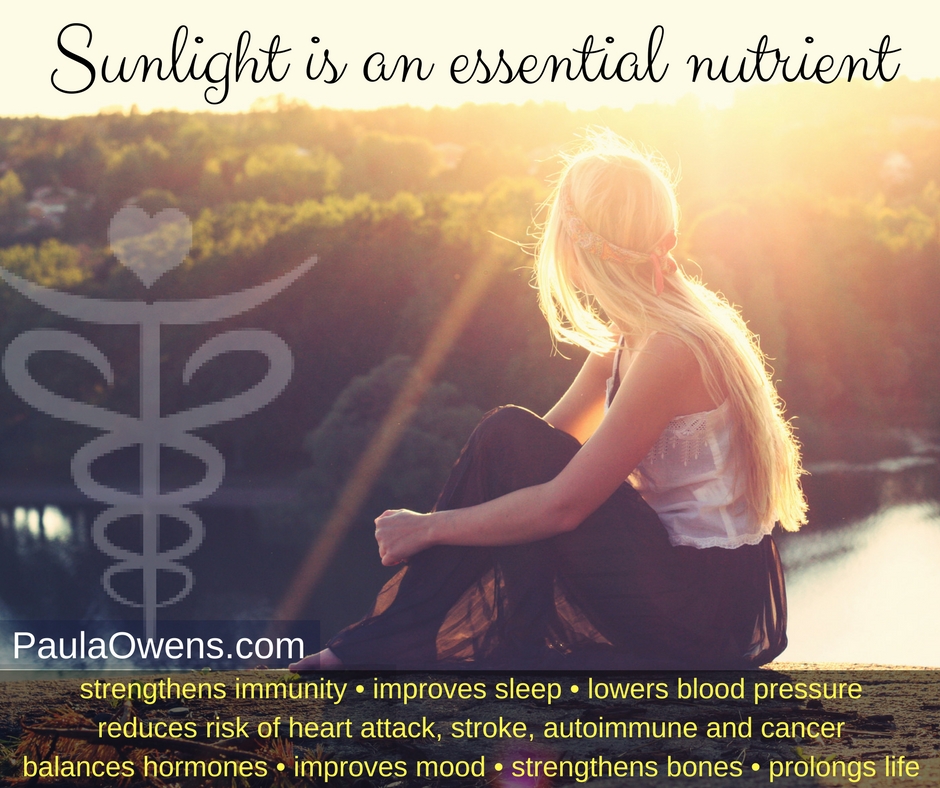Educating and Empowering You to Heal, Thrive, and Live a Happy, Healthy Lifestyle
Vitamin D Healthy Levels

Vitamin D Recommendations: Healthy Levels (part 2)
Sunlight and optimal, healthy ranges of vitamin D are crucial for healthy immune function, brain and cognitive function, reversing symptoms of autoimmune disorders, preventing bone loss, balancing hormones, reducing cancer risk, modulating inflammatory responses and lowering inflammation, optimizing body weight, increasing strength, lowering blood pressure and reducing risk of depression. Remember, what’s considered “normal” lab ranges are not necessarily “healthy” or “optimal.”
Vitamin D: Food as Medicine
-
Increase consumption of oily fish such as wild salmon, mackerel and sardines with the bones
-
Other sources of vitamin D-rich foods include beef liver, egg yolks, pasture-raised grass-fed butter
-
Quality omega-3 fish oil and cod liver oil
-
Most vitamin D-rich foods are fortified, which means that vitamin D has been artificially added
Lifestyle Tips to Boost Vitamin D
-
Spend 15-30 minutes daily outdoors in the sunshine without sunscreen.
-
Heal leaky gut, digestive disorders, address underlying infections and gut dysfunction to increase absorption and assimilation of vitamin D.
-
In order to maintain bone strength and reduce the risk of fracture and falls, the International Osteoporosis Foundation (IOF) recommends that older adults should have a serum 25OHD of 75 nmol/l (30 ng/ml).
-
Test to assess, don’t guess. Obtain annual blood testing that includes vitamin D, 25(OH). It’s important to remember that what’s considered normal is NOT the same as optimal or healthy.
The Sunshine Vitamin, Nature and Exercise
Those who live in Arizona, Florida, Hawaii and California tend to have the lowest vitamin D levels! Enjoy exercising outdoors in nature for a healthy and natural dose of vitamin D. When you spend 15-30 minutes daily in the sunlight without sunscreen the UVB rays increase your body’s ability to naturally produce vitamin D. Remember, some sun exposure is very healthy while overexposure to the point of burning is not.

Vitamin D supplementation
-
Cod Liver Oil
- Bio D Mulsion Forte, an emulsified form of vitamin D3 that is especially beneficial for those with absorption issues.
Vitamin D Recommendations
| Deficient | Optimal | Autoimmune • Cancer • Disease | Excess |
| <50 ng/ml | 60-110 ng/ml | 70-120 ng/ml | >125 ng/ml |

Read part one: Vitamin D Health Benefits (part 1)
Video: The Difference Vitamin D Makes

